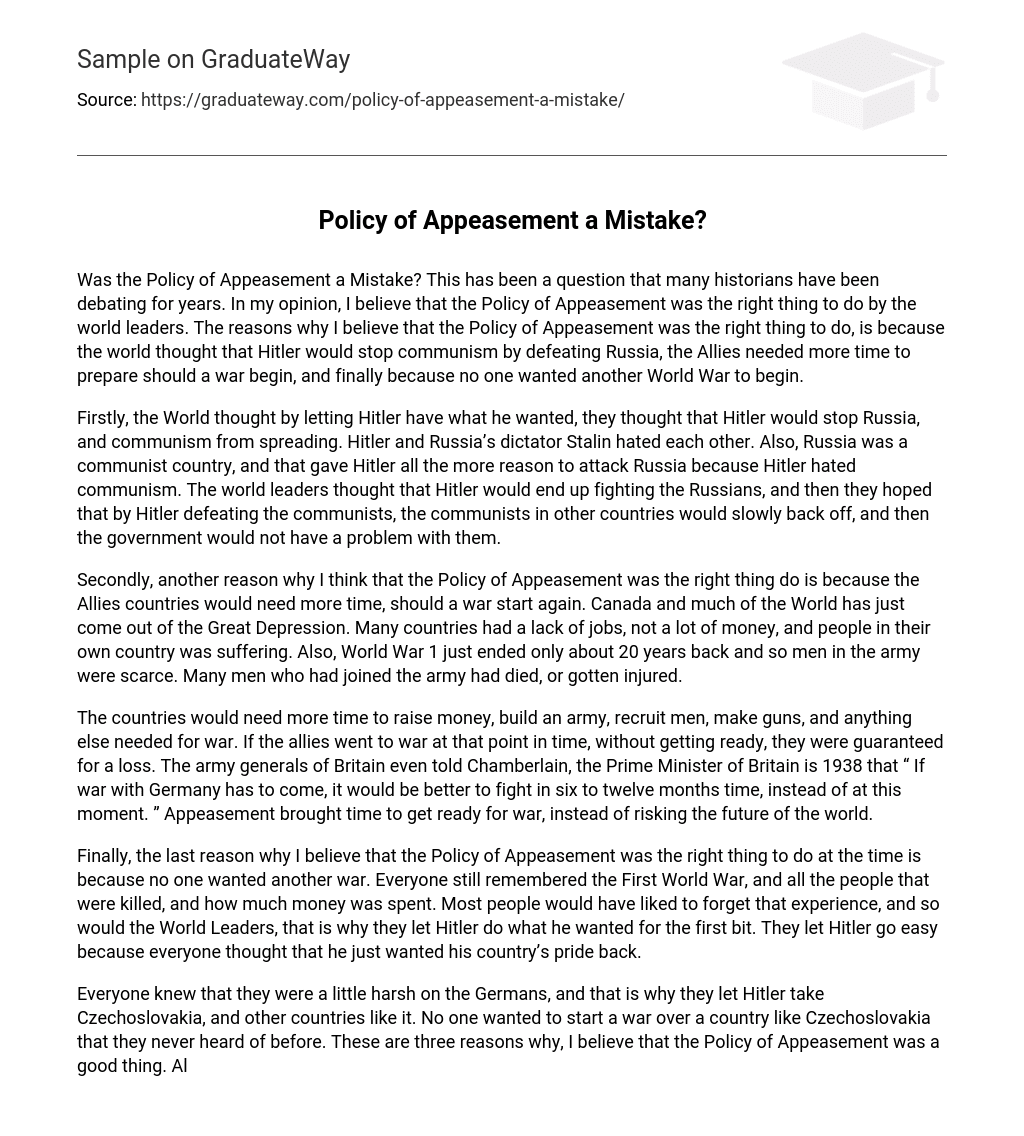There has been a longstanding debate among historians about whether world leaders made the right decision with the Policy of Appeasement. In my personal opinion, I believe they did. Several reasons support this view. Firstly, there was a widespread belief that Hitler would eradicate communism by defeating Russia. Secondly, the Allies required more time to prepare in case war erupted. Lastly, nobody desired another worldwide conflict.
Initially, the global community believed that by satisfying Hitler’s wishes, they could halt the expansion of communism and thwart Stalin, Russia’s dictator. It was widely acknowledged that Hitler and Stalin harbored intense animosity towards each other, primarily fueled by Hitler’s aversion to communism. Given Russia’s status as a communist nation, this further fueled Hitler’s determination to wage war against them. Consequently, world leaders anticipated that if a conflict were to erupt between Hitler and Russia, Hitler would emerge triumphant over the communists. Their aspiration was that such an outcome would deter communist movements in other countries and restore stability to their respective governments.
I believe the Policy of Appeasement was justified because it gave the Allies more time to prepare for another war. This was especially important as Canada and many other nations were still recovering from the Great Depression, with limited job options and economic resources. Additionally, there was a shortage of physically fit men in the military due to the losses and injuries suffered during World War 1, which ended just 20 years prior.
The nations required additional time to obtain funds, establish a military force, enlist soldiers, manufacture firearms, and fulfill any other war-related necessities. Commencing a conflict without sufficient preparation would unquestionably lead to defeat for the allies. In fact, even in 1938, British army generals advised Prime Minister Chamberlain that engaging in battle against Germany within six to twelve months would be more favorable than doing so immediately. The policy of appeasement granted countries the opportunity to ready themselves for war rather than jeopardizing the future of the world.
The Policy of Appeasement was deemed the appropriate decision at the time due to several reasons. Primarily, there existed a strong inclination to deter another war, as individuals still retained vivid memories of the catastrophic casualties and economic strain caused by the First World War. This sentiment was also shared by global leaders who aimed to dissociate themselves from such a traumatic ordeal. Consequently, Hitler was initially granted unrestricted autonomy as it was believed that his primary objective lay in revitalizing Germany’s sense of dignity and standing.
The leaders made the decision to appease Hitler in order to avoid starting a war over a country like Czechoslovakia that they were unfamiliar with. Despite Hitler taking advantage of this situation, the Policy of Appeasement was considered a good thing because the leaders had good intentions for the people.





